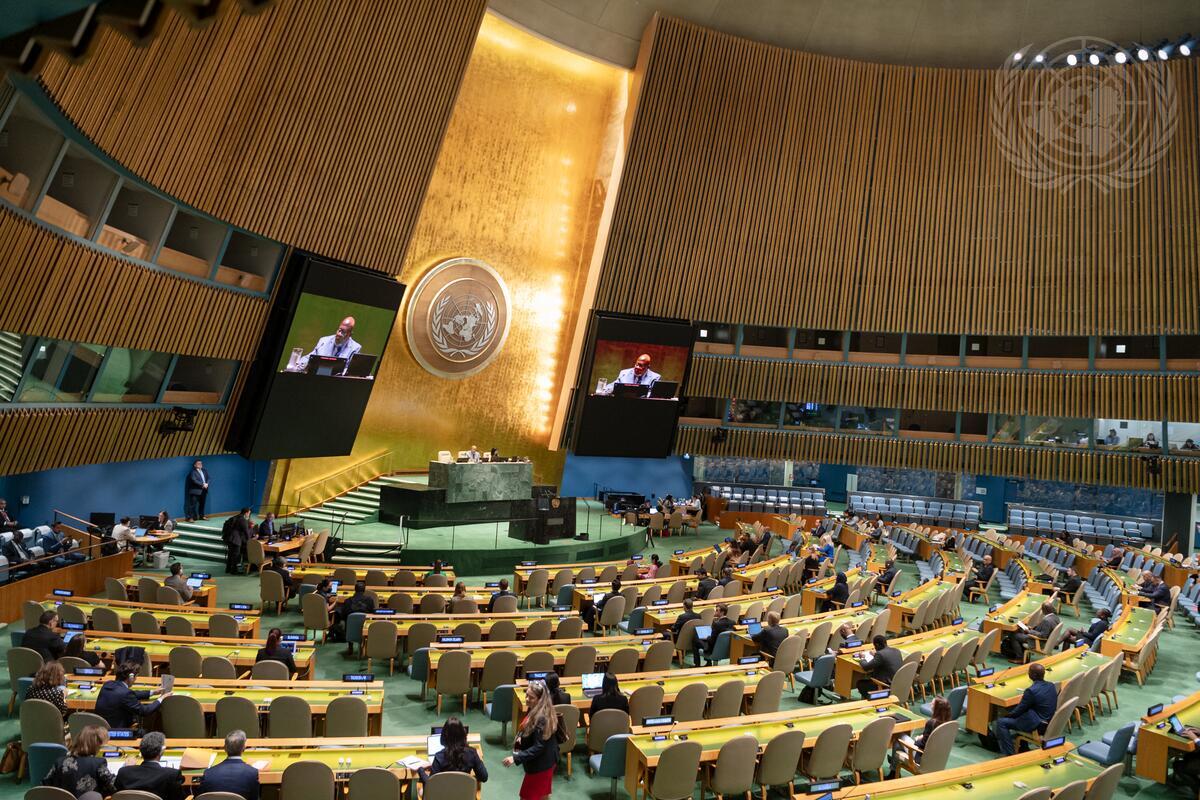Considering the main theme of the General Debate – ‘Leaving No One Behind: Acting Together for the Advancement of Peace, Sustainable Development, and Human Dignity for Present and Future Generations’ -, it is important to remind Georgia of its human rights obligations and commitments under international human rights law.
UN Special Rapporteur on Human Rights Defenders Mary Lawlor recently stated that the situation regarding the protection of the rights of human rights defenders in Georgia has ‘drastically deteriorated since the adoption of the Law on Transparency of Foreign Influence’.
Recent developments in the country raise serious concerns about the realisation of rights to freedom of speech and assembly enshrined in the Declaration on Human Rights Defenders, given the shrinking of civic space and the intimidation of human rights defenders.
The Georgian government and its far-right supporters have a record of publicly accusing human rights defenders. In recent months Georgian human rights defenders have also been physical targets of these groups.
The situation will worsen after the newly adopted law on ‘Family Values and Protection of Minors,’ which contains provisions that pose a risk to the promotion and protection of human rights in the country. This law is fundamentally at odds with international human rights standards, violating a long list of rights enshrined in international human rights treaties, such as ‘the rights to equality, non-discrimination, education, health, freedom of expression, peaceful assembly and association, as well as privacy, liberty, and security.’
The bill also introduces censorship of activism and creative activities and promotes homophobia and transphobia. It restricts freedom of expression by censoring awareness-raising activities related to the dissemination of information about LGBTIQ+ rights and initiatives. Consequently, the law has serious adverse impacts on individual LGBTIQ+ activists and NGOs working on the protection of the rights of LGBTIQ+ people.
Meanwhile, at the General Debate, Georgia is expected to focus on the idea that no one is left behind. To do so, the country must translate its words and commitments into meaningful actions. The introduction of laws that violate the rights of individuals and restrict the functioning of human rights organisations undermines Georgia’s obligations as a signatory to international human rights instruments. It must urgently reverse decisions that impede its ability to fulfil its core human rights obligations.
Download as PDF




